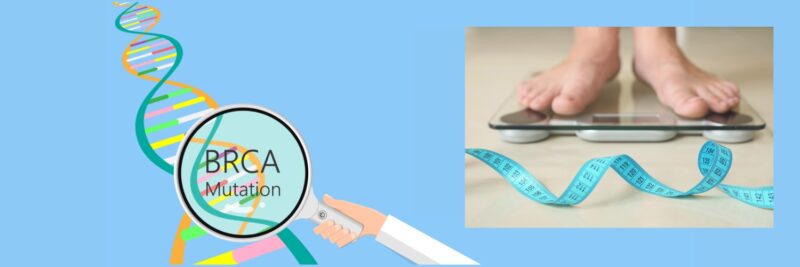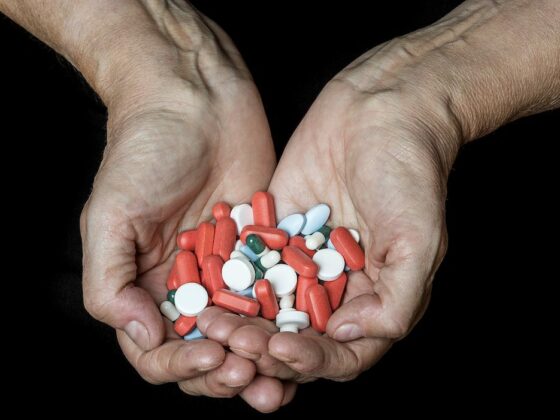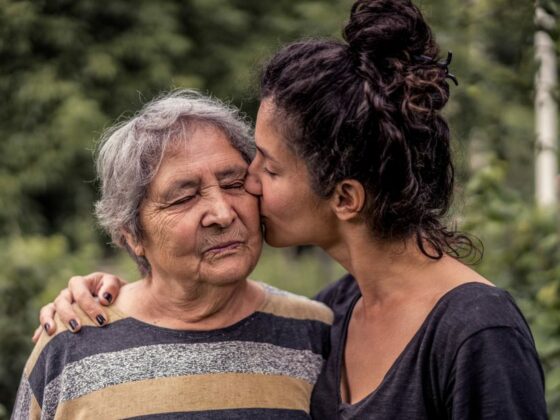Obesity may be a factor contributing to DNA damage in the breast tissue of women with BRCA1 or BRCA2 mutations. The study, published in Science Translational Medicine, February 22, suggests maintaining a healthy body weight or pharmacologically targeting oestrogen or metabolic dysfunction, could offer new strategies for reducing risks of developing breast cancer in women with these mutations.
“These data presented provide mechanistic evidence supporting an increased risk of breast cancer development in BRCA mutation carriers with elevated BMI [body mass index] and metabolic dysfunction and, importantly, provide clinically relevant strategies for risk reduction,” write the authors, led by Kirsty Brown, from Weill Cornell Medicine, New York.
Lack of clarity on the role of BMI and risk of breast cancer in carriers of BRCA1 and BRCA2 mutations has limited the ability of clinicians to provide evidence-based guidance on prevention strategies going beyond prophylactic surgery. Although evidence is strong linking obesity to the development of hormone-receptor-positive breast cancer following menopause for the general population, in BRCA mutation carriers the picture has not been so clear. Some studies have found maintaining weight or losing weight to be associated with delayed onset of breast cancer, while others indicate that increased body weight may confer protection.
In the current translational study, Brown and colleagues set out to explore the relationship between obesity and DNA damage in normal breast epithelial cells taken from women with BRCA mutations who had undergone prophylactic mastectomy.
Altogether, the team analysed non-cancerous breast tissue samples from 40 women with BRCA1 mutations and 29 with BRCA2 mutations. The study population, with BMI ranging from 19.38 to 44.9 kg/m2 (median 23.9 kg/m2), was grouped into two categories: those with lower weight (defined as BMI<25 kg/m2, n=43) and those with higher weight (defined as BMI≥25 kg/m2, n=26).
Immunofluorescence staining for the DNA double-strand break marker γH2AX revealed that women in the higher BMI group had more DNA damage than those in the lower BMI group (P=0.003).
Next, using RNA sequencing, the team showed changes in the breast adipose microenvironment of the obese women, including increased oestrogen production. Blocking oestrogen synthesis or receptor activity with metformin (a drug widely used in type II diabetes, also known to suppress expression of the oestrogen biosynthesising enzyme aromatase) in breast tissue explants cultured from women with BRCA mutations reduced DNA damage. A heatmap of genes involved in oestrogen regulation demonstrated significant (P<0.05) increases in many genes involved in the bioactivity, biosynthesis and activation of oestrogens.
To better understand whether increased DNA damage was associated with tumour growth, the team went on to use a mouse model where the BRCA1 gene had been deleted in female mice, who were then randomised to receive low- and high-fat diets to produce lean and obese mice. Staining for γH2AX in mouse mammary glands at euthanasia showed that mice fed the high-fat diet had elevated levels of mammary gland DNA damage compared to those fed the low-fat diet. Furthermore, in mice sensitised to mammary tumour development, at 28 weeks surveillance, 85.7% of those in the high-fat group developed tumours compared to 69.2% in the low-fat group.
“Although several factors and pathways associated with metabolic dysfunction were shown to be up-regulated in breast tissue and epithelial cells, the identification of pathways related to oestrogen biosynthesis and signalling was of particular interest given the availability of clinically approved drugs that target oestrogen,” write the authors.
Next, the team hope to further study mechanisms driving DNA damage in breast tissue of women with BRCA mutations and to undertake clinical studies involving lifestyle changes or metformin in these patients. “Metformin is an attractive option to study because it has very limited side effects and we can think about the possibility of using it in a risk reduction setting. However, we still need to determine which biomarkers can be used as clear indications of risk reduction in this patient population, beyond closely following people for cancer development,” says Brown.












